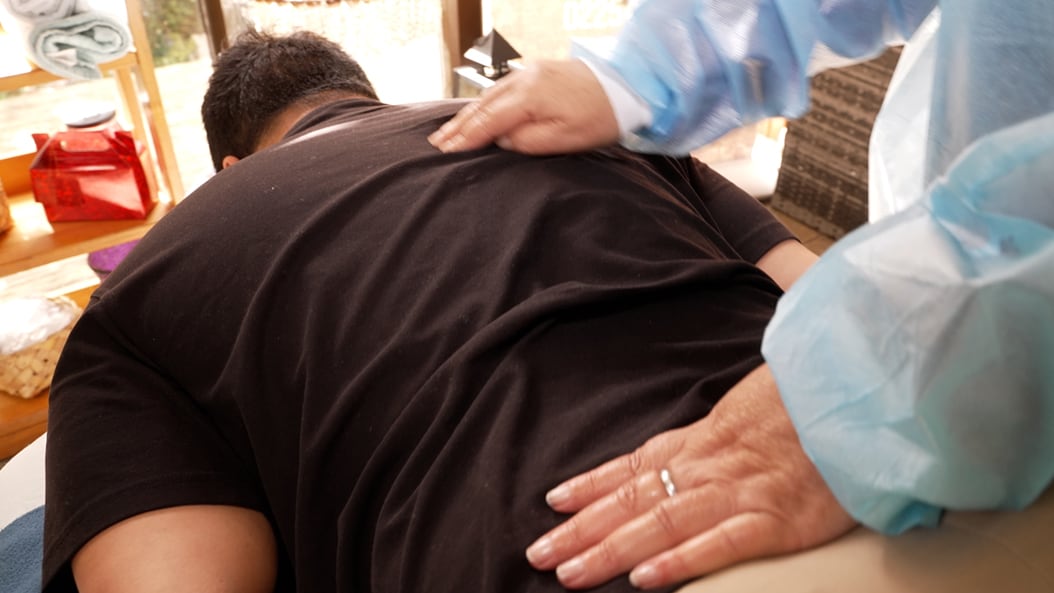It has been close to a year now since the Accident Compensation Corporation (ACC) incorporated rongoā Māori (traditional Māori healing methods) into its rehabilitation treatments.
ACC is guided by the Waitangi Tribunal’s definition from the ‘Ko Aotearoa Tēnei’ report, which define rongoā Māori as including mirimiri (massage), whitiwhitikōrero (support and advice), and karakia (prayer). ACC hopes using these services will not only rehabilitate injured Māori clients but every client who chooses to use this service.
Māori rongoā has always been part of Ngaire Khan’s life and she is more than happy to share this taonga to those who are in need.
Khan of Te Arawa is one of the 100 and growing in numbers expert Māori medicine practitioners registered with ACC. Khan grew up in Te Puna of Rotorua and as a child frequently visited a tohunga (priest or healer) who looked after the health and wellbeing of her whānau. She says she has known the power and reality that rongoā Māori and practices do work.
“I am really blessed to be in this space and to be approved by ACC for rongoā Māori and that is my passion to do mahi to do the miri on the whānau,” Khan said.

7,245 rongoā sessions funded
ACC does not fund healing techniques from non-Māori cultural traditions, such as reiki or hyperbaric oxygen treatment, as part of rongoā Māori even if they have been provided by Māori practitioners. ACC will pay for rongoā Māori sessions but not any products such as oils and other products that the client may want to take home.
So far ACC has approved rongoā Māori in 1,190 claims, has funded a total of 7,245 sessions and one in four of those clients haven't received any other forms of ACC care or treatment before receiving rongoā.
No to Māori healing practices
The government of the day passed the Tohunga Suppression Act 1907, which was intended to stop people from using traditional Māori healing practices. But now the government via ACC has allowed rongoā Māori and practices to restart. When Te Ao Mārama asked why the government now allowed this, ACC’s Turei-Hamiora Ormsby said this was an opportunity as a new pathway forward for the betterment of Māori health and the teaching of these practices among Māori.
“This is a new pathway and we have been giving it a really good go at making it work. From this hope, we can move on from the past wrongs that have affected us”.
ACC has launched a new TeleHealth initiative for its clients that enables them to continue with booking appointments to all their services, keeping updated and supported during Covid-19.
